Views of a Veterinarian - Dr. Paul Biagiotti, DVM
This week Dr. Biagiotti shares some of his views on calf raising with us!
Dr. Biagiotti, is a veterinarian by training. He has practiced in conventional and organic dairy practice for over 3 decades. He has practiced in small herds using hand milkers, robotic herds, and huge modern dairies.
Based on Dr. Biagiotti’s experience in organic practice, Hoards Dairyman published his book “Practical Organic Dairy Farming” in 2016. It is available for purchase in the Hoards Online Bookstore.
Currently Dr. Biagiotti works for Danone North America and assists hundreds of organic and non-GMO farms managing animal welfare and milk quality.
Views from Paul Biagiotti, DVM
Q. What opportunities do you see in the near future for improving the health and welfare of our calf rearing programs?
A. Genomics I think is huge. I am a member of the American Association of Bovine Practitioners (AABP) and I am on the genomics and genetics committee. Genomics has really transformed the dairy industry. Not only in adult cattle, but even health traits in calves. The sky is the limit for the potential with what genomics can do. It’s going to help us with calf health, pathogen targeting, and determining what are the best medications to use.
In addition to genomics nutrition is huge. Not only for the calf, but also for the dry cow. Properly fed dry cows have healthier calves from the get-go. We really need to give more attention to the dry cow. There are many epigenetic effects that we need to pay attention to and learn more about. We are getting new information every day, but one thing I have learned in 30 years of practice, if the nutrition is not right, then everything is difficult. As an industry we are making strides in the precision feeding of calves. It’s not one size fits all, but there are definite benefits for the health and profitability of the calf.
Manipulation of the microbiome is another exciting area of discovery that we are learning more and more about and the effects of that manipulation on the immunity of the animal.
Q. What are your thoughts on antibiotic resistance in calves?
A. Mainly I work with organic calves now, but as the industry whole there is a huge area of opportunity to reduce antibiotic use. By decreasing antibiotic use we will save the dairy money and labor. There is an organization called the Food Armor Foundation, whose mission is to promote antimicrobial stewardship. They provide learning modules around antimicrobial stewardship for both producers and veterinarians.
There is great room for improvement in making accurate diagnosis, treatment, dosage, and record keeping. 30-40% of dairy calves have a morbidity event, diarrhea or pneumonia, between birth and weaning. Many are treated with antibiotics, but most cases of diarrhea do not require antibiotic treatment so there is great potential there. Veterinarians have been harping on this for years, but still there has been very little improvement. We need to be doing more routine necropsies and postmortems to determine if treatments are effective.
It is best if we can avoid illness in the first place with proper nutrition and management. Right, as I said before exploit the microbiome and optimize the immune status of the calf. I am a big believer in probiotics, gut protectants, and the evidence behind these products.
Q. What are your thoughts on single vs paired or group housing?
A. There is a growing body of evidence showing better growth for calves raised in paired or group housing. They also socialize better and have an improved sense of well-being when raised together. Many of our organic producers that pair and group house have very little problems with their calves. Good nutrition and management really go a long way. Cross suckling can be managed by feeding them well and providing some forage.
Q. In what ways can producers leverage off farm resources for employee training?
A. I’ve written articles for Hoard’s for years, and many of them are regarding training. On every dairy there is drift from what the ideal SOP or the ideal protocol should be. It happens all the time and is continual, training and retraining is essential.
Take advantage of any value-added resources available. Consultants, nutritionists, service providers, and extension agents. Always involve the herd vet, as they have one of the best holistic views of the entire operation. We can all learn together as an advisory team.
In my current role I am doing a lot of welfare auditing. Through the FARM program there is some training available and continuing education for many different roles on the farm.
Thank you Dr. Biagiotti for sharing some thoughts with us! The statements and opinions provided in this article are personal expressions from Dr. Biagiotti and are not necessarily those of his employer Danone, N.A.
Written by: Mariah Gull, M.S.
